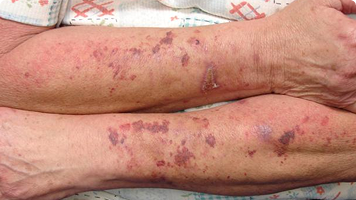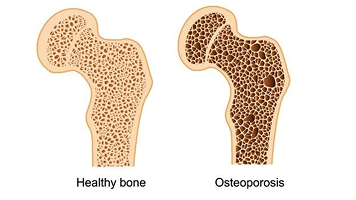
Advanced Care for Cushing’s Syndrome in Chennai

Cushing’s Syndrome is a serious hormonal disorder stemming from prolonged exposure to elevated cortisol levels, a hormone created by the adrenal glands. This disorder can arise from the body producing too much cortisol or from extended use of corticosteroid medications. If not addressed promptly, Cushing’s Syndrome can lead to significant health complications such as high blood pressure, diabetes, and osteoporosis, underscoring the importance of awareness and proactive management. Dr. Thalavai Sundarram offers specialised treatment for Cushing’s Syndrome in Chennai, focusing on timely diagnosis and effective management.
Causes of Cushing’s Syndrome
Long-Term Corticosteroid Use
Prolonged use of medications like prednisone for asthma or arthritis can be a key factor.Pituitary Tumors (Cushing’s Disease)
Tumors in the pituitary gland can cause excessive ACTH production, leading to cortisol overproduction.Adrenal Tumors
Both benign and malignant tumors in the adrenal glands may also produce excess cortisol.Ectopic ACTH Syndrome
Tumors in the lungs or pancreas can inadvertently produce ACTH, resulting in cortisol excess.
Recognising Symptoms of Cushing’s Syndrome

Unexplained Weight Gain

Purple Stretch Marks (Striae)

Thinning Skin and Bruising

Muscle Weakness

Osteoporosis

Elevated Blood Pressure

Elevated Blood Sugar Levels

Mood Variations
Diagnosis of Cushing’s Syndrome
- 24-Hour Urine Cortisol Test – Measures the amount of cortisol in a daily urine sample.
- Dexamethasone Suppression Test – Evaluates cortisol production following steroid administration.
- Salivary Cortisol Test – Analyses cortisol levels in late-night saliva samples.
- Blood Tests – Checks for abnormal ACTH and cortisol levels in the bloodstream.
- Imaging Tests (CT/MRI) – Identifies any adrenal or pituitary tumors.

Top Treatments for Cushing’s Syndrome
Surgical Intervention (Tumor Removal)
For Cushing’s syndrome due to tumors in the pituitary or adrenal glands, precise surgical removal is the most effective solution. Performed by skilled endocrine surgeons, minimally invasive techniques ensure optimal recovery and symptom relief.
Radiation Therapy
If complete surgical removal of a pituitary tumor isn’t feasible, targeted radiation therapy is employed to gradually reduce tumor size and cortisol production.
Medications
Cortisol-lowering drugs like ketoconazole or metyrapone may be prescribed to manage symptoms and stabilize hormone levels, especially when surgery isn’t an immediate option.
Adrenalectomy (Gland Removal)
In severe cases where both adrenal glands must be removed, long-term hormone replacement therapy becomes essential to maintain cortisol balance and prevent adrenal insufficiency.
Outcomes of Specialised Cushing’s Syndrome Treatment
- Restored Hormonal Balance Reduction in cortisol levels improves overall health.
- Symptom Relief Normalized metabolism, stabilized blood pressure, and improved energy levels.
- Lower Risk of Complications Timely intervention helps prevent diabetes, osteoporosis, and cardiovascular issues.
- Enhanced Quality of Life Patients experience reduced weight gain, improved mood, and better overall well-being.
Complications of Untreated Cushing’s Syndrome
- Diabetes and Hypertension – Increased chances of cardiovascular disease.
- Severe Osteoporosis – Heightened risk for bone fractures.
- Kidney Stones – Resulting from elevated calcium levels.
- Immunity Issues – Weakened immune response increases susceptibility to infections.
- Psychological Challenges – Includes anxiety, depression, and cognitive difficulties.
Take Control of Your Health with Cushing’s Syndrome Management
Timely diagnosis and effective treatment are crucial for enhancing the quality of life for those with Cushing’s Syndrome. Regular monitoring, lifestyle adjustments, and appropriate medical care are instrumental in maintaining balanced cortisol levels. If you’re experiencing signs such as unexplained weight gain, muscle weakness, or elevated blood pressure, don’t hesitate—seek medical advice for immediate attention and support. Your health matters, and taking the first step can lead you towards a healthier life.

Medically Reviewed by
Dr. Thalavai Sundarram
Endocrinologist
M.S., M.Ch (Endocrine Surgery) FARIS
BOOK APPOINTMENT

